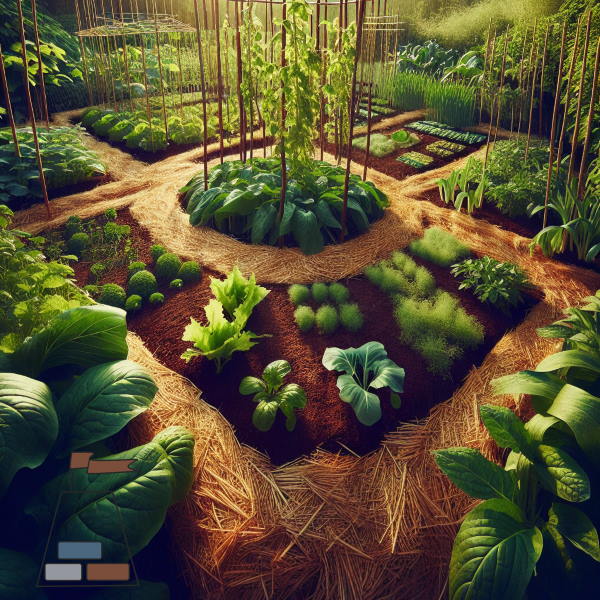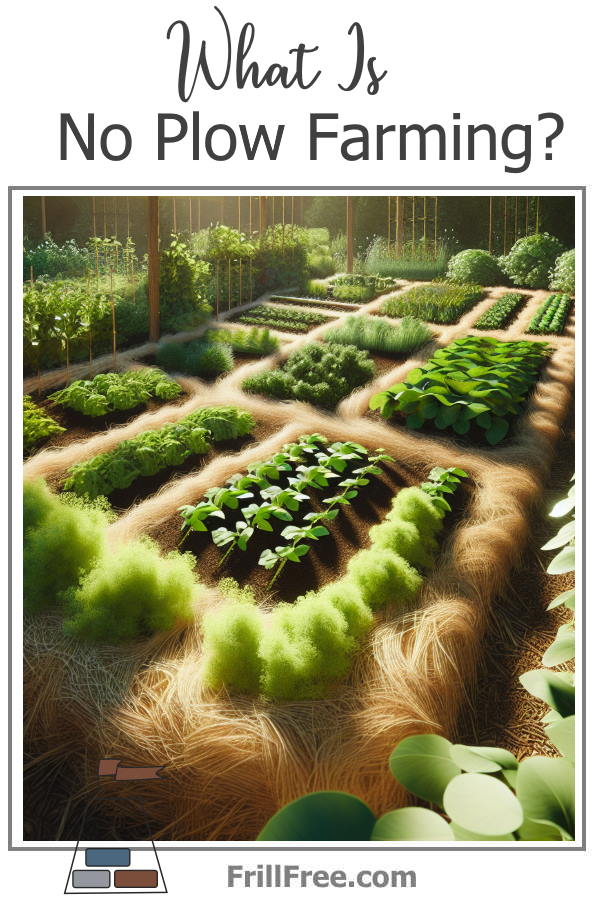- Homesteading
- Methods of Organic Farming
- What Is No Plow Farming
What Is No Plow (or Plough) Farming?
Why Would You Use This Method?
Have you ever wondered what lies beneath those vibrant, organic gardens you admire? Let’s dive into the fascinating world of no plow farming, sometimes called no till farming, a technique that promises lush gardens without the all-too-familiar back-breaking task of tilling the soil.
What is no plow (or plough) farming, you ask? It’s an approach that's gaining traction among homesteaders, preppers, and organic gardeners, not just for its sustainability but also for its simplicity.
At its core, no plow farming involves growing crops without disturbing the soil through traditional tilling. This method preserves the soil's natural structure, promoting a balanced ecosystem underground.
But why should you, as a beginner or seasoned gardener, consider this technique?
For starters, it aligns beautifully with the principles of organic growing, encouraging nature to do its thing while you sit back and watch.
Picture this: A rich tapestry of organic matter, earthworms hard at work, and beneficial microbes all contributing to a thriving soil beneath your feet. That's the magic behind no till farming.
By skipping the plow, you’re allowing this community to stabilize, leading to healthier plants and crops.
This method invites you into a partner's role with nature, creating not just a garden but a living ecosystem.
The benefits of no plow farming are as vast as a spring meadow. Firstly, it increases soil fertility. By leaving plant residues on the surface, or adding more in the form of mulch, you stimulate organic matter decomposition, enriching the soil.
In case you needed yet more benefits, it also improves water retention, meaning your garden can withstand dry spells much better. Plus, without disturbing the soil, you’re preventing erosion, which keeps your precious earth in place.
But wait, there's more! No plow farming can also significantly reduce your carbon footprint.
Traditional tilling releases carbon dioxide trapped in the soil, but no plow methods keep it securely locked away. This means you’re gardening with a nod to climate consciousness. Isn’t it rewarding to know your green thumb is also eco-friendly?
Starting with no plow farming might seem daunting, but it’s actually quite straightforward. Begin by covering your garden plot with organic mulch or a cover crop.
A variety of options, from straw to clover, will work wonders. This layer acts like a cozy blanket, protecting the soil, suppressing weeds, and slowly turning into natural compost.
Next, rather than turning over the soil, simply plant directly into it. Use a tool like a dibber to make holes for your seeds or seedlings.
This minimally invasive method maintains soil structure while ensuring the plants have good contact with the earth below. You’ll find that your plants thrive with this gentle approach, as if they’re on a luxurious spa retreat!
Wondering how to tackle those pesky weeds without tilling them under? Fear not, because no plow farming has just the solution.
By keeping your soil undisturbed and covered in mulch, you effectively smother weeds with less effort.
Plus, the increased soil biodiversity crowds out unwanted growth naturally. It’s like having a tiny army of helpers working for you gratis.
Let us not forget, the idea of less physical labor and more time enjoying the fruits of your efforts is a sweet bonus. No more wrestling with heavy tilling equipment.
Instead, spend your time savoring that rewarding mix of sun and soil while your garden medicine works silently beneath the surface.
For those keen on sustainability, no plow farming is a must-try. It celebrates biological processes and harnesses old ways of farming that modern chemical practices shoved aside.
This eco-friendly method helps reclaim a bygone era's wisdom right in your backyard. Who knew the path to modern gardening bliss would lead backward, unlocking nature's ancient secrets?
Now, let's touch on water conservation. Traditional gardening methods often struggle during dry spells.
No till farming makes your soil a thirsty sponge, soaking up and holding onto moisture for your plants to drink up as needed.
You’ll be the proud owner of a resilient, drought-busting plot.
Concerned about your plant’s yield with this technique? Fret not! Many gardeners swear by no plow farming for its abundant yields.
The uninterrupted and nurtured soil fosters robust root systems, leading to healthy, productive plants. You’re not just growing bigger crops; you’re cultivating a garden that gives back generously.
Engage with your garden on a deeper level with no plow farming. It’s not merely a technique; it’s an experience that transforms how you view the soil under your feet.
Join those inspired by organic growing to innovate while rediscovering time-honored practices that prioritize harmony and natural growth over mechanical intervention.
 No Plow (or Plough) farming can be permanent or temporary, with beds that are re-planted every year with annual vegetable plants, or planted with perennial plants
No Plow (or Plough) farming can be permanent or temporary, with beds that are re-planted every year with annual vegetable plants, or planted with perennial plantsIf your garden dreams also include biodiversity, this is the path forward.
No plow farming fosters an environment rich in life, from beneficial insects to the buzz of bees, all supporting plant growth. You will create a haven for wildlife, all the while improving and enhancing your garden’s health.
Worried about the start-up costs? No plow farming is beautifully simple on your wallet. Forget expensive machinery or synthetic inputs.
With just seeds, a bit of organic mulch, and your own hands, you're ready to embark on this transformative journey.
Remember, like any skill, no plow farming takes a little trial and error. Be patient with yourself and the earth as you adjust this method to suit your gardening goals.
Each season provides its own lessons, but every harvest brings you closer to mastering this synergy with nature.
With no plow farming, you’re doing more than gardening. You’re joining a growing community of diligent stewards, using their plots as a testament to environmentally conscious living, while reaping the rewards of less physical labor and healthier ecosystems.
Imagine proudly sharing your bountiful, resilient, organic garden with friends, family, or community.
So, why not dig into this rewarding, green-soiled adventure? Through no plow farming, you plant yourself at the helm of a sustainable practice, contributing to a healthier planet.
Take pride in not just growing your garden, but also in nurturing a world of change beneath your hands. Happy no tilling to you!












